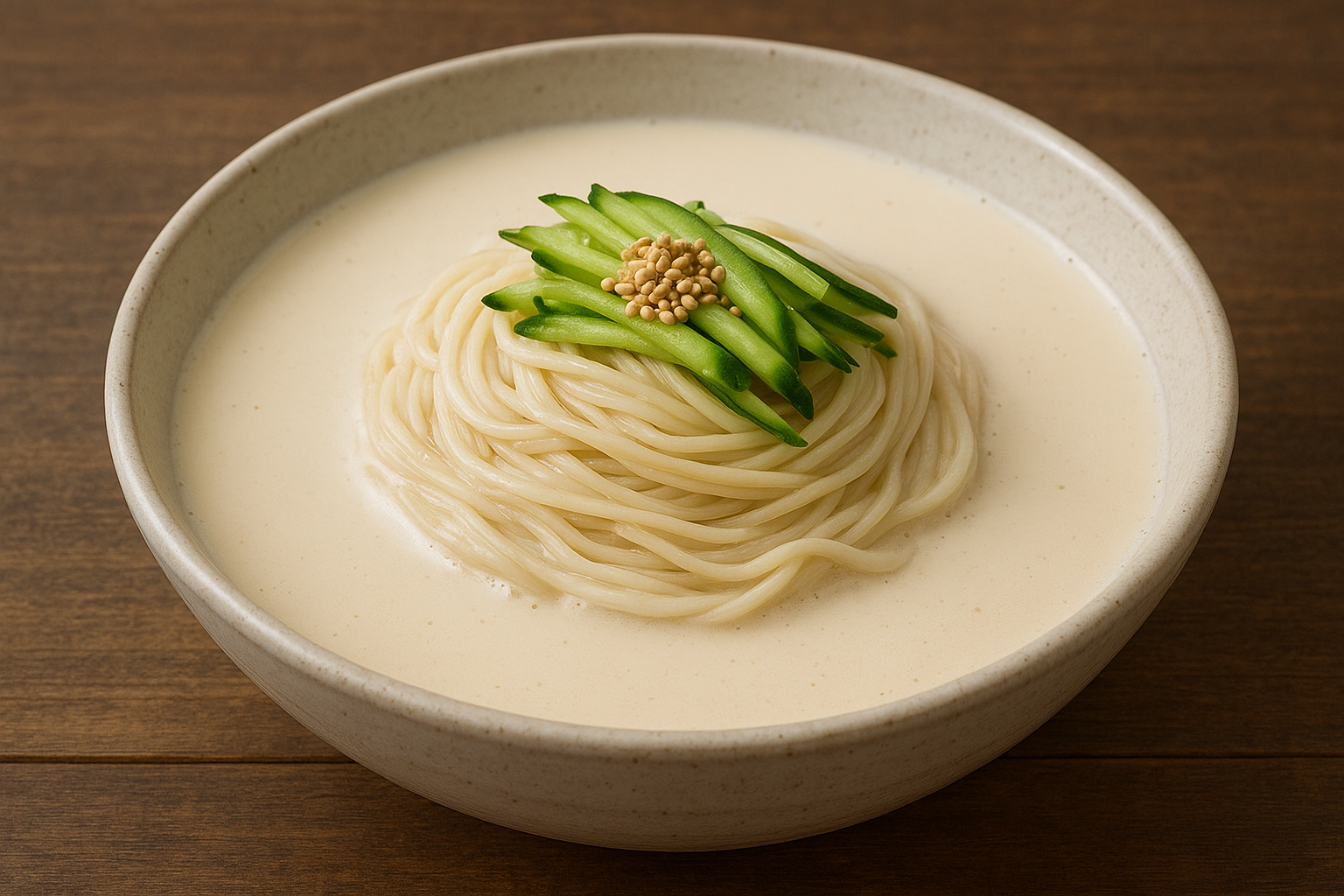1. The Nutritional Advantages of Kong-guksu
Kong-guksu is a representative Korean summer health food, made by serving noodles in a cold broth made from ground, boiled soybeans. This ‘soy broth’ is the key element that differentiates kong-guksu from other noodle dishes.
– Rich in Protein and Healthy Fats: Soybeans are so rich in plant-based protein they are called ‘beef from the field.’ They also contain a good amount of unsaturated fatty acids, which are beneficial for vascular health.
– Dietary Fiber and Isoflavones: Soybeans also contain dietary fiber along with isoflavones, which are nutrients with antioxidant effects.
2. Positive Effects on Blood Sugar Management
– Delayed Digestion and Absorption: The abundant protein and fat in the soy broth increase the time the noodles (carbohydrates) stay in the stomach and slow down the rate at which they are absorbed as glucose in the small intestine.
– Gradual Blood Sugar Rise: As a result, even when eating the same amount of flour noodles, kong-guksu raises post-meal blood sugar more gradually than a simple noodle soup with a plain water or anchovy broth.
– High Satiety: Thanks to the protein and fat, it keeps you feeling full for longer, which also helps prevent overeating.
3. Points to Note
– Noodle Type and Amount: The main source of carbohydrates in kong-guksu is still the ‘noodles.’ It is better to choose buckwheat noodles over white somen noodles, which raise blood sugar quickly, and to reduce the portion of noodles.
– Salt Seasoning: Adding too much salt when eating kong-guksu can lead to excessive sodium intake, so it is better to season it lightly.
Summary: Kong-guksu is a wiser noodle choice for people with diabetes, as the rich protein and fat in its soy broth help to maintain more stable post-meal blood sugar levels compared to other noodle dishes by slowing down the digestion and absorption of the noodles.


Leave a Reply